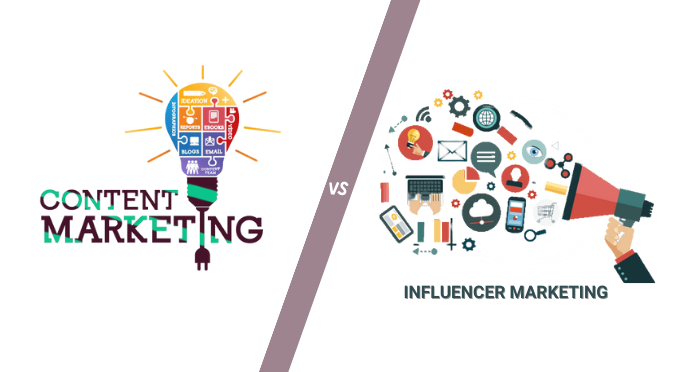Do you want to establish a sustainable brand name amongst your target customers?
Content marketing is steadily becoming a major tactic for attaining sustainable brand awareness. Based on research by HubSpot, it is seen that around 90% of marketers will extensively invest in a better content marketing plan.

While curating a content marketing plan, you must ensure that your milestones revolve around building a larger audience.
Content marketing has been an important player in the digital marketing world.
However, we have a new member that is slowly and steadily capturing the attention of brands. We call it Influencer marketing, a strategy that is expanding the reach of brands.
By 2024, the expenditure on influencer marketing will grow to around $7.14 billion.
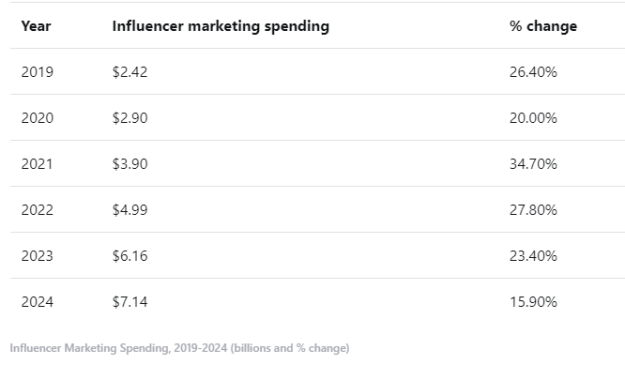
Despite the growing relevance, marketers are still in a dilemma: Influencer Marketing or Content Marketing?
Content marketing and Brand Propositioning:
To be specific, content marketing is the strategy integrated for advertising products and services amidst a target audience.
Marketers have been using different categories of content like blogs, short videos, infographics, articles, etc.
Short-form video content has gained immense popularity among customers.
As per the illustrated research of Wistia, in 2022, an individual spent almost 19 hours a week consuming online short video content.
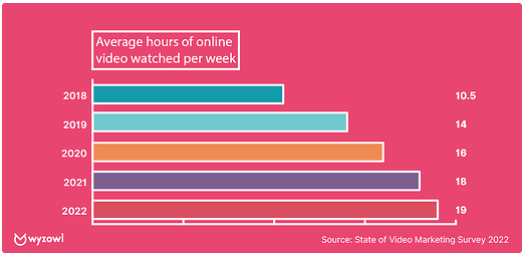
Further, as per Wistia’s research, viewer engagement with short-form video content has increased and was stable in 2021.
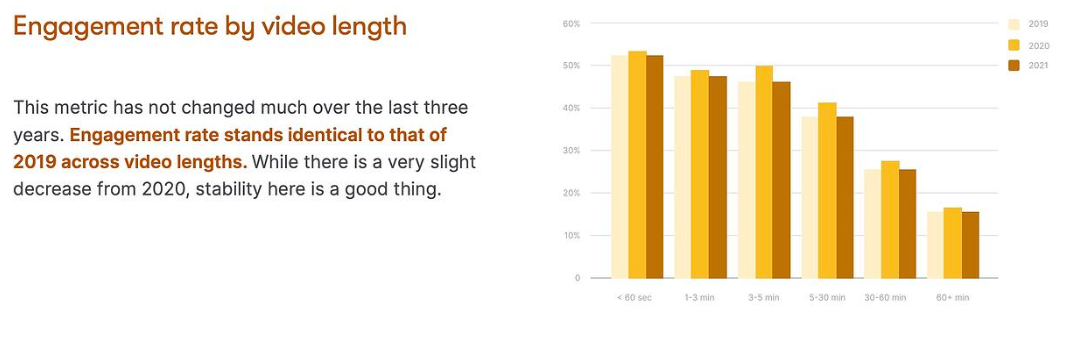
Businesses are strategically utilizing SEO optimization techniques like maintenance of keyword density, backlinking, etc. for appearing on the first number of SERP pages.
Businesses are utilizing content marketing for positioning themselves as experts in their industry. Marketers are looking forward to placing their businesses as thought leaders amongst targeted audiences.
Thus, in this age of digitization, the primary goal of content marketing services is to attain better brand positioning in the competitive market.
Other marketing strategies like TV commercials, pamphlets, and hoardings are short-term in nature. In most cases, they are specific to a particular product or service.
However, content marketing is being integrated for representing the company as a whole, thereby, focusing on building long-term customer relationships.
Therefore, content marketing is used as a strategy for establishing a brand’s position in the market.
Content marketing has been in the picture for a very long time. However, its importance increased post the pandemic of 2020 when individuals were stuck at home. They started consuming more content daily.
However, there exists an identity crisis between content marketing and influencer marketing.
Influencer Marketing: A Catalyst for Content Marketing?
Customers are no longer interested in the life of celebrities. Thus, as illustrated below around 49% of the customers largely rely on the recommendations given by influencers on social media channels like Instagram, Twitter, or YouTube.
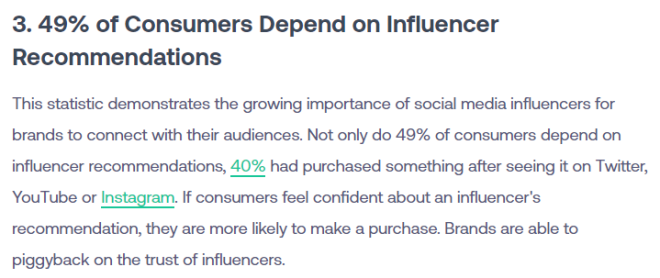
As per research by the digital marketing institute, 86% of women utilize social media channels for receiving suggestions for purchasing decisions.

Brands are approaching influencers for collaborations against monetary or non-monetary value.
Ultimately, content is the base on which influencer marketing is growing exponentially.
Influencer marketing is responsible for boosting the outcomes of content marketing. An increase in customer interaction rate has been the ultimate profit of influencer marketing for brands.
Yes, we can refer to influencer marketing as a catalyst for content marketing.
Now, let us understand the difference between these two strategies.
Influencer Marketing Vs. Content Marketing
Yes, influencer marketing completes content marketing. However, there exists a tad bit of difference between the two of them.
Content marketing is related to the overall process of sharing consistent but valuable content for educating the target audience.
On the other hand, influencer marketing is a part of content marketing where brands collaborate with creators with a large follower base. Influencers deliver content in the form of short videos or blog posts for targeting their follower base.
You should know that if you are hiring an influencer, as a brand, you will not have much hold on the message being delivered. However, if you are just using content marketing as your preferred tool, you can control the message that you want to deliver.
Currently, with the changing customer preferences, brand resonance has become the key to better customer engagement leading to improved brand position!
Thus, brand resonance is the ultimate strategy for competitive brand positioning.
Consequently, influencer marketing is known for building better brand resonance whereas content marketing is all about brand positioning on a wider scale.
So, with reference to this, brands are confused about which strategies to choose and move forward. Specifically, they are not being able to choose between strengthening brand resonance or brand position.
Want to find out which of the strategies is reliable? Let us find out!
Which One Should You Choose?
Built-in the year 2014, Yoga Bar utilized an influencer marketing strategy to build its brand authority by collaborating with micro-influencers.

Yogabar’s most successful campaign by collaborating with influencers was “Inspire Yourself First”. They collaborated with Arun Sharma, a fitness influencer. Thus, Yogabar has been successful in building a strong customer base via influencer marketing.
Therefore, brand awareness is the most important outcome of influencer marketing. As per the illustrated research influencer marketing hub, the influencer marketing industry was worth $16.4 billion in 2022.
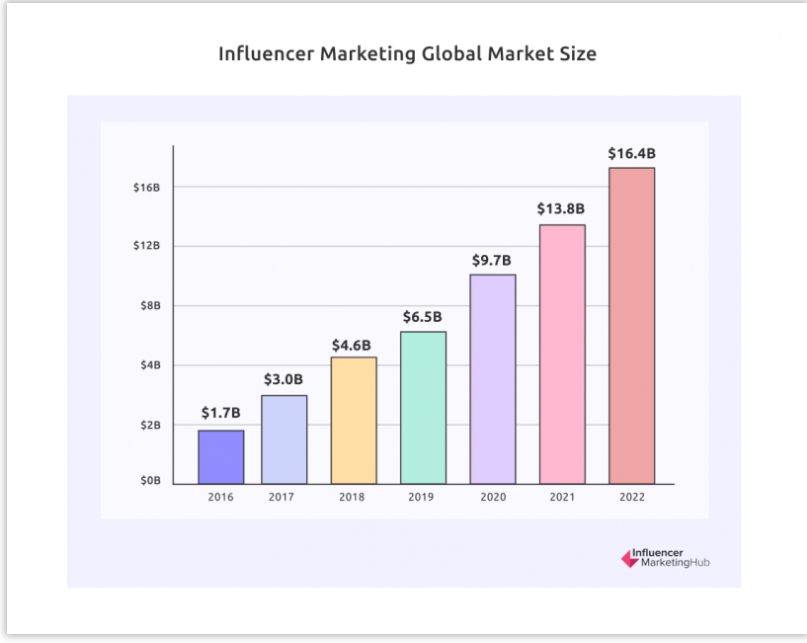
Thus, influencer marketing is an added benefit of content marketing. However, if you are planning to directly jump into influencer marketing without building a strong content base, it will not be helpful at all.
Thus, building a strong foundation of content marketing strategy is essential.
While building an influencer marketing strategy, you must have strong knowledge about your brand’s touchpoints. Now, what are brand touchpoints?
They are the interaction points where consumers are exposed to the characteristics of the brand. Some of the relevant brand touchpoints that create brand resonance are social media, blog posts, online reviews, videos, post-purchase interactions, podcasts, etc.
You will see that just by integrating influencer marketing, you will have the opportunity of covering most of the above touchpoints.
As per the marketing rule of 7, you must ensure a minimum of 7 interactions with your customers for permanent conversion. Thus, influencers will assist you in the generation of quick leads through continuous interactions.
Hence, integrating influencer marketing within your content marketing plan will be a shift in your overall digital marketing strategy.
Therefore, both content marketing and influencer marketing must complement each other. Within this growing competition, customers cannot be misled by any random information. And if there lies a loophole in your content marketing strategy, the customer attrition rate will increase.
For building better brand resonance and reaching out to a larger audience, integrating both influencer and content marketing is essential. Your brand will have the opportunity of building a large and sustainable customer base.
Takeaway:
While figuring out between content marketing and influencer marketing, you need to know about the success parameter of each. The success of influencer marketing depends on content marketing and vice versa.
Just entering the influencer marketing world? Confused about the most preferred social media platform?
According to the research of influencer marketing hubs, Facebook has taken the lead in 2022 followed by YouTube.
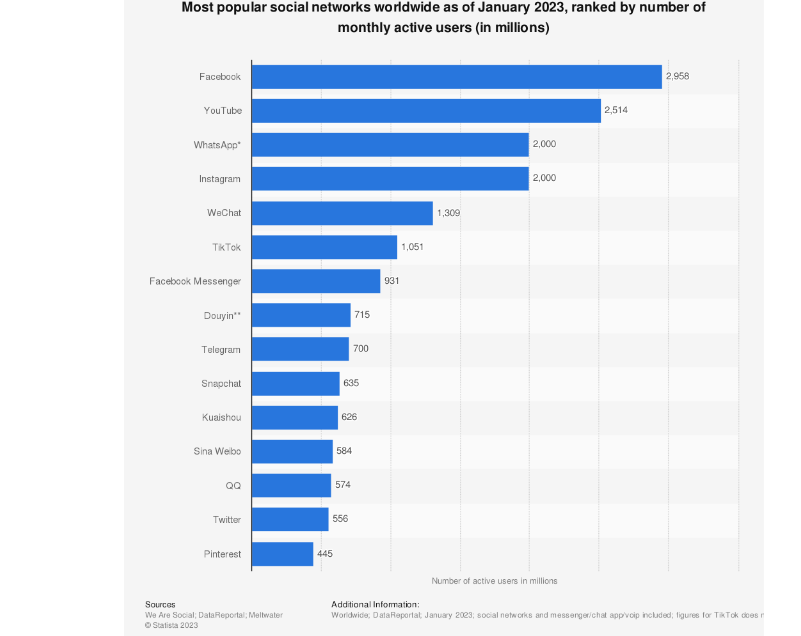
For a unidirectional content and influencer marketing strategy, you can connect with a reputed content marketing agency for availing benefits of both strategies.

